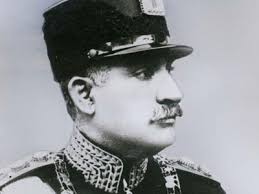In 2016 I read 50 books, more than a dozen for the classes I took in in the spring and fall of the year, many more because of the reading I had done for those classes. One of the first questions I had in making this list is how to sort it? By author? By Title? By trade category: fiction, non-fiction, etc.?
Since the list is a spreadsheet, I sorted it by the language of the writer or the subject. With that sort method, 25 of the books are by Russians or about the Russian language, plus a biography of Vladimir Putin, which has a very Russian subject. Next is 15 books by english-speaking writers, then four by Greek writers, two by Hermann Hesse (German), two by Italian writers, one by an Israeli and one book in French.
Another column told me 15 of the 50 books are about war--some about war itself, some about the effects of war on civilians, some about life after war.
First on the war list is
Life and Fate by Vasily Grossman. As vast as Tolstoy's War and Peace, the book weaves together lives in Russia centering on the Battle for Stalingrad in 1942. The book includes
descriptions of the Holocaust more wrenching than anything I have ever read. A short book of Grossman's dispatches from Stalingrad titled "From the Front Line" shows where he did his research.
Then a completely different book I will say much more about in the next few weeks:
Grunt by Mary Roach. This is actually a popular science book about the science of keeping soldiers alive, restoring their health, or at least learning from their deaths. It is a darkly funny book by a brilliant writer.
Three of the four books I read by Kazuo Ishiguro are about before and after war. I wrote about those three books
here. The fourth was
Nocturnes, five stories of love and music set in Venice.
Returning to sad war stories,
Zinky Boys about the Soviet war in Afghanistan, 1979-89. All of the stories are first-person heart wrenching, especially the mothers. This book should be sold with a Kleenex box.
Just a few years before the Soviet Afghan War was the Yom Kippur War in Israel in 1973.
The Lover is a dream-like tale set in the time of that war. It seems to unravel in the middle, but comes together in a very strange way at the end.
The Italian writer Primo Levi tells us about life before, during and after World War II in his native land in the book
The Periodic Table. Another book covers the time Levi spent in a Nazi Concentration Camp. The saddest section is when Levi knew his fate and could not avoid it. Levi is a chemist and the chapters are elements.
Three more Russian war stories in three different eras:
A Hero of Our Time by M. Lermontov depicts life during a border war in the Caucuses in the early 19th Century. It has many similarities with the Afghan War in "Zinky Boys" and with Russia's War in Chechnya. In the book
Sin by Z. Prelepin tells us the story of his life in glimpses of his childhood, young love, his service in the Chechen War and how he lived after the war. The book, by its many glowing reviews in Russia, tells the wrenching truth about life in 21st Century Russia. In between is a book not exactly about war, but about a Russian soldier who wanted to be a warrior and ended up a prison camp guard.
The Zone by Sergei Dovlatov, tells the story of life in a Soviet Prison Camp where the guards are not much better of than the inmates.
Finally, two war books from Ancient Greece:
The Iliad and
The Odyssey. I read the first chapter and parts of several others in my spring Ancient Greek class. The Odyssey is certainly more popular, but the Illiad is the real soldier's story. It had been two decades since I last read Illiad. I had forgotten how well Homer knows the life and motivations of soldiers. I read Illiad in translation. If you read either, I suggest the translation by Richmond Lattimore.
I also used Lattimore's
New Testament in the my fall Greek class. I have read a dozen translations of the Bible. Lattimore's New Testament is the best. Most Bibles are translated by a committee and all the writers sound the same. In Greek the individual writers are as different as Mark Twain, Hermann Hesse, Robert Frost and Junot Diaz. Lattimore gives the reader the writer's true voice, not a dozen writers in a blender.
Next post is the books on peace, or at least the absence of war.




